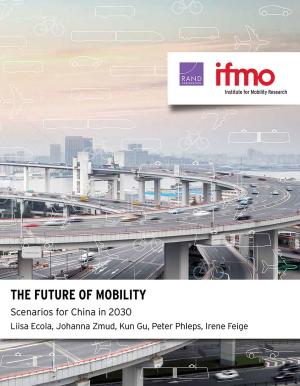Reparable Harm
Assessing and Addressing Disparities Faced by Boys and Men of Color in California
Nonfiction, Health & Well Being, Medical, Reference, Health Policy, Reference & Language, Education & Teaching, Educational Theory, Educational Reform, Social & Cultural Studies, Social Science| Author: | Lois M Davis, M. Rebecca Kilburn, Dana Scultz | ISBN: | 9780833046864 |
| Publisher: | RAND Corporation | Publication: | January 27, 2009 |
| Imprint: | RAND Corporation | Language: | English |
| Author: | Lois M Davis, M. Rebecca Kilburn, Dana Scultz |
| ISBN: | 9780833046864 |
| Publisher: | RAND Corporation |
| Publication: | January 27, 2009 |
| Imprint: | RAND Corporation |
| Language: | English |
The Los Angeles area has the most severe traffic congestion in the United States. Trends in many of the underlying causal factors suggest that congestion will continue to worsen in the coming years, absent significant policy intervention. Excessive traffic congestion detracts from quality of life, is economically wasteful and environmentally damaging, and exacerbates social-justice concerns. Finding efficient and equitable strategies for mitigating congestion will therefore serve many social goals. The authors recommend strategies for reducing congestion in Los Angeles County that could be implemented and produce significant improvements within about five years. To manage peak-hour auto travel, raise transportation revenue, improve alternative transportation options, and use existing capacity more efficiently, they recommend 10 primary strategies: improve signal control and timing; restrict curb parking on busy thoroughfares; implement paired one-way streets; promote ride-sharing, telecommuting, and flexible work schedules; develop a high-occupancy toll-lane network; vary curb-parking rates with demand, enforce the current parking cash-out law; promote deep-discount transit passes; expand bus rapid transit and bus-only lanes; and implement a regionally connected bicycle network. In addition, three recommendations may help, depending on the outcome of current events: evaluate arterial incident management, consider cordon congestion tolls, and levy local fuel taxes to raise transit revenue. Given that some of the recommendations may prove controversial, the authors also outline complementary strategies for building political consensus.
The Los Angeles area has the most severe traffic congestion in the United States. Trends in many of the underlying causal factors suggest that congestion will continue to worsen in the coming years, absent significant policy intervention. Excessive traffic congestion detracts from quality of life, is economically wasteful and environmentally damaging, and exacerbates social-justice concerns. Finding efficient and equitable strategies for mitigating congestion will therefore serve many social goals. The authors recommend strategies for reducing congestion in Los Angeles County that could be implemented and produce significant improvements within about five years. To manage peak-hour auto travel, raise transportation revenue, improve alternative transportation options, and use existing capacity more efficiently, they recommend 10 primary strategies: improve signal control and timing; restrict curb parking on busy thoroughfares; implement paired one-way streets; promote ride-sharing, telecommuting, and flexible work schedules; develop a high-occupancy toll-lane network; vary curb-parking rates with demand, enforce the current parking cash-out law; promote deep-discount transit passes; expand bus rapid transit and bus-only lanes; and implement a regionally connected bicycle network. In addition, three recommendations may help, depending on the outcome of current events: evaluate arterial incident management, consider cordon congestion tolls, and levy local fuel taxes to raise transit revenue. Given that some of the recommendations may prove controversial, the authors also outline complementary strategies for building political consensus.















